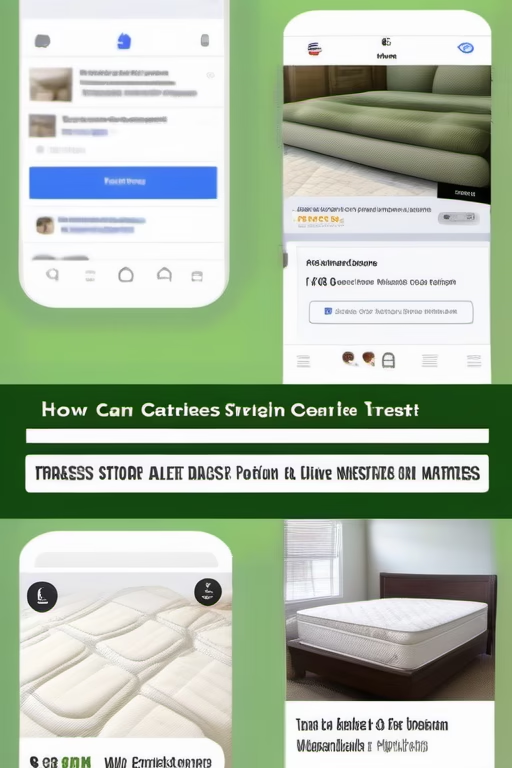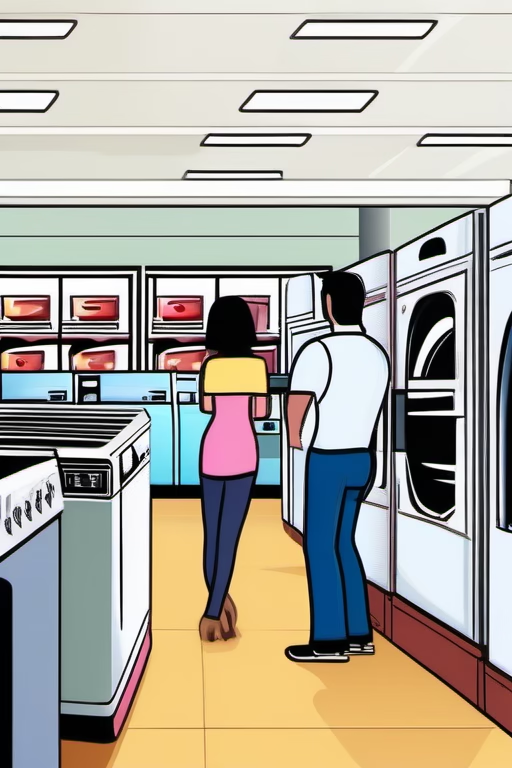How to Use AI to A/B Test Your Marketplace Listings Automatically
Generate smarter variants, rotate them safely, and measure winners—without spending every night in your inbox.
Introduction
How to Use AI to A/B Test Your Marketplace Listings Automatically is a practical blueprint for sellers who want more clicks, messages, and sales velocity without guesswork. You’ll build a lightweight experiment stack that respects platform policies, automates repetitive edits, and focuses your time on fulfillment—not endless relisting.
Compliance: Always follow each marketplace’s terms. Use native tools and approved workflows; avoid spammy reposting or misleading claims.
Expanded Table of Contents
- 1) Why “How to Use AI to A/B Test Your Marketplace Listings Automatically” matters
- 2) What to Test First (Title • Photo • Price • Category • Description • Tags)
- 3) Experiment Design for Marketplaces (Rotation • Holdouts • Decision Rules)
- 4) Automation Architecture (Inputs • AI • Guardrails • Scheduler • Logging)
- 5) Prompt Recipes (Titles • Photos • Descriptions • Pricing • FAQs)
- 6) Photo & Angle Playbook (What the First Image Must Show)
- 7) Smart Price‑Band Testing (Protect Margin While Learning)
- 8) Rotation Cadence & Timing (Daily/Alt‑Day • Peak Browsing Windows)
- 9) KPIs & Dashboard (Impressions→Views CTR • Message Rate • Sales Velocity)
- 10) 30–60–90 Day Rollout Plan
- 11) Troubleshooting & Optimization
- 12) 25 Frequently Asked Questions
- 13) 25 Extra Keywords
1) Why this matters
- Attention is visual: The first photo and the first five words decide your CTR.
- Markets shift daily: Titles, tags, and prices age quickly; automation keeps you current.
- Small tweaks, big wins: A tighter title or corrected category often beats discounts.
2) What to Test First
| Element | Variant Ideas | Notes |
|---|---|---|
| Title | Benefit‑first vs spec‑first; add size/color/brand; geo or delivery | Keep ≤ 80–120 chars; front‑load decision words |
| First Photo | Front‑angle vs lifestyle vs detail; bright vs dark; with/without scale object | Show full item and key detail; avoid clutter |
| Price Band | −5% vs baseline vs +5% | Track inquiries per view, not just clicks |
| Category/Tags | Primary vs secondary categories; 5–10 targeted tags | Never miscategorize; follow policy |
| Description | Bullet spec vs story; condition scale; delivery/pickup options | Put must‑knows in first 2 lines |
| Delivery | Local pickup vs delivery window; shipping eligible | State fees clearly; no surprises |
3) Experiment Design for Marketplaces
- A/A check: Before testing, verify your tracking by duplicating a control variant to ensure metrics match.
- Rotation vs true split: Many marketplaces don’t expose true split tests; rotate variants by day/time and compare like‑for‑like windows.
- Decision rule: Promote a winner when CTR ↑ and message rate ↑ vs control for ≥ 3 comparable windows and ≥ 300 aggregate clicks.
- Holdout: Keep 10–20% of inventory on control patterns to confirm lift isn’t just seasonality.
4) Automation Architecture
| Layer | Function | Notes |
|---|---|---|
| Inputs | CSV/Sheet with SKU, specs, images, price | Add fields: category, tags, geo, delivery |
| AI Generator | Titles, bullets, FAQs, tag suggestions | Conform to voice codex + banned words |
| Guardrails | Policy filter, character limits, claims rules | Strip risky language; fix capitalization |
| Scheduler | Variant A ↔ B rotation by day/time | Respect platform limits; avoid spam |
| Logger | Impressions, views, messages, sales | UTM‑like notations/snapshots where possible |
5) Prompt Recipes
Title Variants
Write 5 marketplace titles for {item}. Include {brand/model/size/color/condition}.
Pattern mix: benefit‑first, spec‑first, geo, delivery‑available.
≤ 90 chars. Start with a decision word.Description Bullets
Turn these specs into 5 bullets: {specs}. Lead with condition + must‑knows.
Add pickup/delivery options and a friendly CTA.Photo Order
Propose an image order for {item} to maximize CTR: hero → scale → detail → back → flaw (transparent).Price Band
Suggest two price bands around {baseline}. Keep margin ≥ {min%}. Include rationale.
Output: baseline, band‑low (−%), band‑high (+%).FAQ Box
Generate short FAQs for {item}: dimensions, condition, pickup times, holds, payment, returns.6) Photo & Angle Playbook
- First image: full item, bright natural light, neutral background, no clutter.
- Add scale: a measuring tape or common object (if allowed) to convey size.
- Show flaws honestly; trust beats returns.
- Keep a repeatable 5–7 angle shot list per category.
7) Smart Price‑Band Testing
Use narrow bands to learn demand without gutting margin.
| Band | Price | When to Use |
|---|---|---|
| Band‑Low | −5% | Older inventory; price‑sensitive geos |
| Baseline | List price | New arrivals; strong comps |
| Band‑High | +5% | Scarce color/size; weekend peaks |
Decision rule: If Band‑High holds ≥ 75% of messages vs baseline over 3 windows, keep the premium.
8) Rotation Cadence & Timing
- Rotate daily or every other day; avoid multiple reposts in one day.
- Post during local peak windows (evenings/weekends) for fair comparisons.
- Reset after major weather/holiday spikes; don’t mix incomparable weeks.
9) KPIs & Dashboard
Visibility
Impressions, Views/Impressions (CTR)
Engagement
Messages/Views, Saves, Replies
Conversion
Booked visits, Sales, Days‑to‑Sell
Unit Economics
Avg selling price, Hold rate on price, Margin
Tracking tip: snapshot metrics per variant window; use a sheet to compute lift vs control.
10) 30–60–90 Day Rollout Plan
Days 1–30 (Foundation)
- Create a voice codex + banned words; standardize shot lists.
- Pick 1–2 categories; set up CSV and logging sheet.
- Launch Title A/B + First Photo order + ±5% price band.
Days 31–60 (Momentum)
- Expand to tags/categories; add FAQ boxes to descriptions.
- Introduce rotation scheduling and weekly pruning.
- Systematize winner templates per category.
Days 61–90 (Scale)
- Translate/localize winners; add shipping vs pickup tests.
- Automate dashboards and anomaly alerts.
- Negotiate tool pricing; document SOPs.
11) Troubleshooting & Optimization
| Symptom | Likely Cause | Fix |
|---|---|---|
| High views, low messages | Weak first photo or vague title | Brighten hero; front‑load size/brand/condition |
| Engagement drops after repost | Audience fatigue | Change hero angle; refresh first 120 characters |
| Policy flags | Prohibited terms or miscategory | Run guardrail prompts; re‑categorize correctly |
| No clear winner | Insufficient data or noisy windows | Extend test; compare same dayparts only |
12) 25 Frequently Asked Questions
1) What is “How to Use AI to A/B Test Your Marketplace Listings Automatically”?
A step‑by‑step system to design, rotate, and measure listing variants using AI—safely and efficiently.
2) Which element should I test first?
Title + first photo, then price band. They move CTR and messages most.
3) Is automation allowed on Facebook Marketplace?
Policies change—use native tools and avoid spammy reposting. When in doubt, post manually.
4) How many variants per item?
Two at a time (A and B). Add C later if you have volume.
5) How do I prevent duplicate listings?
Rotate on the same item where possible; don’t run multiple live duplicates.
6) Can I copy winners across categories?
Yes—convert patterns (e.g., “brand + size + condition first”) into templates.
7) How fast will I see results?
Often within 7–14 days if you post during peak windows.
8) What if comments are negative?
Address concerns in the description and FAQ; consider a defect photo.
9) Should I include video?
Short clips boost trust for complex items; keep under 15–30s.
10) Do tags really matter?
Targeted tags aid discovery—use 5–10 accurate terms.
11) How do I choose price bands?
Use comps, scarcity, and age‑on‑shelf; start with ±5%.
12) Can AI prevent policy mistakes?
AI can flag risky phrases and suggest safe alternatives—human review is still required.
13) Does this work for used items?
Yes—detail photos and honest condition notes convert used inventory.
14) What if I sell custom items?
Test story‑led descriptions vs spec‑led; highlight lead times.
15) Can I automate replies?
Use saved replies for hours, holds, and pickup details; escalate pricing nuances.
16) What about shipping damage risks?
Offer pickup variant; add packaging notes and insurance info.
17) How do I track results?
Snapshot views/messages/sales per variant window in a sheet.
18) Do I need pro photos?
No—clean light, steady framing, and honest angles beat filters.
19) Should I use emojis?
Sparingly. Prioritize clarity and searchable words.
20) How do I handle returns?
State policy plain and early; add to the FAQ box.
21) Can I localize titles?
Yes—add neighborhood/city if helpful and allowed.
22) Will constant edits hurt ranking?
Avoid over‑editing. Rotate on a schedule and let each window gather data.
23) What if a platform hides my listing?
Review category, images, and wording; comply with policy and repost once.
24) Do bundles work?
Yes—test bundle pricing and a “Buy both, save time” angle.
25) First step today?
Create two titles and two photo orders for one item, set a ±5% price band, and rotate for one week.
13) 25 Extra Keywords
- How to Use AI to A/B Test Your Marketplace Listings Automatically
- ai marketplace ab testing
- facebook marketplace listing test
- etsy listing optimization ai
- ebay title testing
- craigslist listing experiments
- marketplace photo testing
- first image ctr
- price band experiments
- marketplace rotation schedule
- listing tags seo
- category selection best practices
- description bullet templates
- faq box marketplace
- local pickup vs delivery test
- shipping eligibility experiment
- message rate optimization
- sales velocity marketplace
- inventory relist policy safe
- voice codex marketplace
- guardrail prompts policy
- automation scheduler listings
- dashboard tracking listings
- marketplace sop 2025
- listing optimization playbook

















